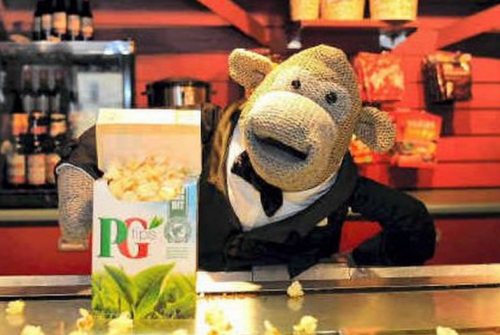Unilever shelves major acquisitions for ‘foreseeable future’ after investor backlash

Household goods and food conglomerate Unilever said it will not pursue major acquisitions for the foreseeable future and will begin a share buyback programme of up to €3bn over the next two years, after consulting with its shareholders.
The move is in response to its botched attempt to buy the GSK Consumer Healthcare business last month with a bid shareholders considered was over-inflated.
The group, which operates a key home and personal care manufacturing site at Port Sunlight, Wirral, unceremoniously withdrew its approach following a fall in its share price and investor derision.
Unilever announced the move today in its full year results announcement which revealed a 3.4% increase in turnover of €52.4bn, and a pre-tax profit of €8.556bn, up from €7.996bn.
It said it had achieved its fastest underlying sales growth in nine years – 4.5%, with 2.9% price and 1.6% volume.
Last November the group announced it had entered into a deal to sell its global tea business, ekaterra, to CVC Capital Partners Fund VIII for €4.5bn on a cash-free, debt-free basis. It includes a factory in Trafford Park, Greater Manchester, which makes the PG Tips and Lipton brands.
Unilever said today deal completion is expected in the second half of this year.
Chief executive Alan Jope said: “The acceleration of Unilever’s operating performance continues. We delivered our fastest underlying sales growth for nine years – 4.5% for the full year, with 1.6% from volume.
“Our thirteen billion-Euro brands grew 6.4%. Priority markets of China, India, and the US grew at 14.3%, 13.4%, and 3.7% respectively. Our growth in e-commerce was 44%, ahead of global channel growth and bringing e-commerce to 13% of turnover. We have continued to re-shape our portfolio into high growth spaces, acquiring in Prestige Beauty and Functional Nutrition, and agreeing the sale of our Tea business.”
He said the major challenge of 2021 has been the dramatic rise of input costs. The group responded with pricing actions, delivering underlying price growth of 2.9% for the year, accelerating to 4.9% in the fourth quarter, with full year underlying operating margin down 10bps and underlying earnings per share up 5.5%.
He added: “We are focused on driving faster growth from our strong portfolio of brands and markets, and recently announced a major change to create a simpler, more category-focused organisation designed to further improve performance. In 2022, we will manage a significant input cost inflation cycle and will continue to invest competitively in marketing, R&D and capital expenditure.
“We have engaged extensively with our shareholders in recent weeks and received a strong message that the evolution of our portfolio needs to be measured. We, therefore, do not intend to pursue major acquisitions in the foreseeable future and will conduct a share buyback programme of up to €3bn over the next two years.”
Russ Mould, investment director at Manchester investment platform AJ Bell, said: “Having been lambasted by investors for caring more about ESG factors than improving the day-to-day business, and then making a punchy takeover bid for GlaxoSmithKline’s consumer healthcare business, Unilever has dusted off its crisis management manual and followed the rule book of how to dig oneself out of a hole.
“The company says underlying sales growth is at a nine-year high, it has successfully sold the non-core tea business, there are more share buybacks, and – perhaps most interesting – there are promises not to chase big deals for now.
“But are these results really cause for celebration? First, a big chunk of its sales growth has come from putting up prices which every product manufacturer seems to be doing. Volume growth paints a different story with a mere 1.6% gain – that’s not good when you consider Unilever is meant to own some of the world’s most prized brands. Are these names less relevant to shoppers in a world with increased choice?
“Profit margins are under pressure which is a big worry. Again, Unilever’s brands are meant to be world-class, so if a company with its assets cannot defend margins, something is very wrong.”

Russ Mould, AJ Bell
He added: “Then there is the issue of Unilever’s future priorities. It wants to focus more on health, beauty and hygiene than food and drink, yet this could be a big mistake. The food and drink division is the strongest growing part of the business, so why would the company lose interest in its best player?
“A month ago, it said major acquisitions should be accompanied by the sale of lower growth brands and businesses. That’s confusing logic given that its lower growth divisions are where it wants to focus.
“All this would suggest Unilever has got itself tied in knots and the shareholder backlash means the clock is ticking for chief executive Alan Jope to properly decide on a long term strategy to generate sustainable growth, otherwise he will be out of a job very soon.”




